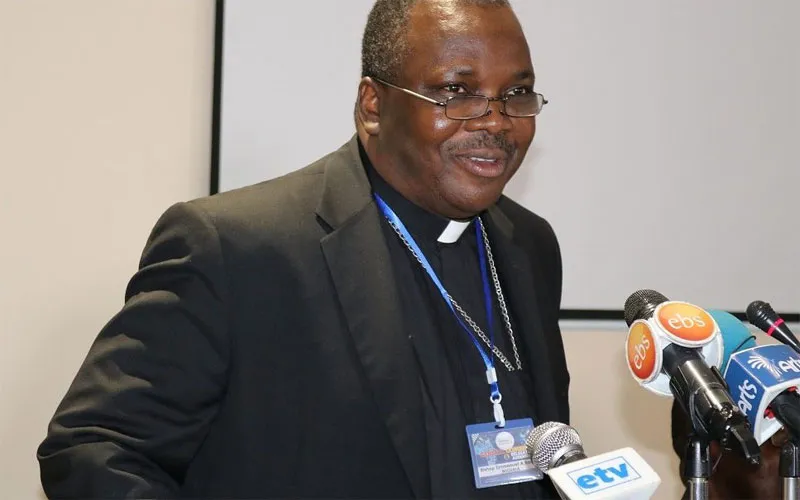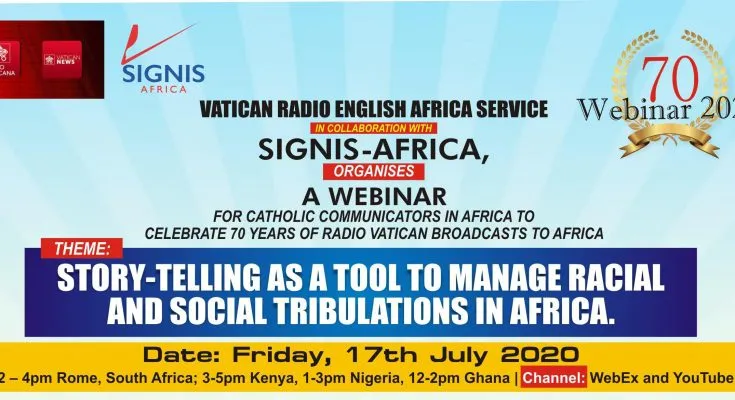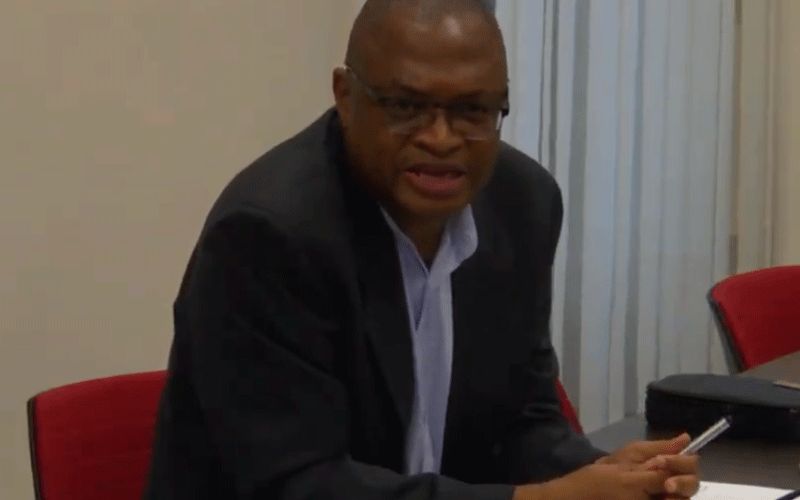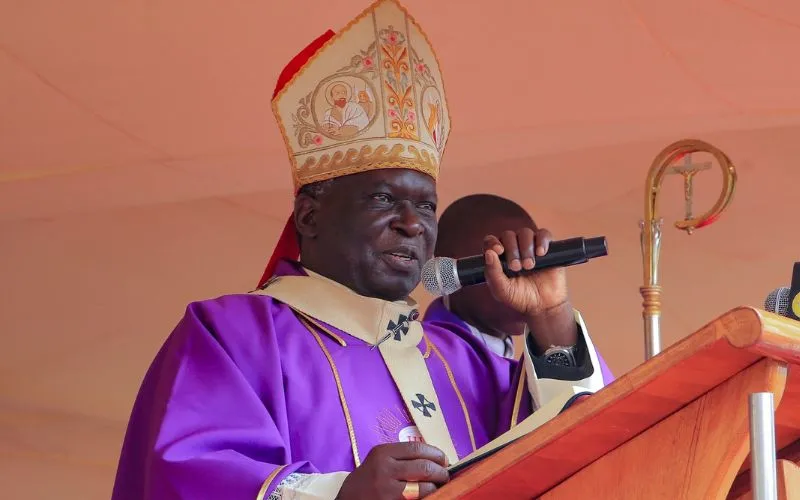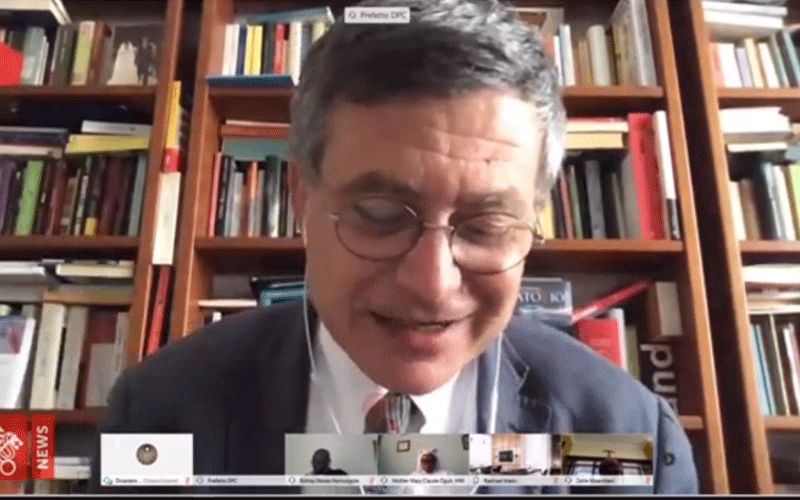According to him, the Church communicator is not just a witness of work but “he or she writes and says but mainly of what he or she does in society.”
“I am glad that this webinar is based mainly on the theme of Pope Francis' message for what Communication is like,” the Rome-based Prefect of the Holy See’s Dicastery for Communications said, and added, “The Holy Father spoke about the importance of telling stories. There are thousands and thousands of stories of good needing to be told.”
Fr. Federico Lombardi who is the immediate former Director General of Vatican Radio and the Vatican Press office highlighted the relationship between the Vatican Radio and Africa saying that radio had always been important for communications in Africa.
“I know how the radio was important for communication in Africa,” Fr. Lombardi said, and added, “I can also witness that Vatican Radio during the years had a very strong engagement to serve Africa with enthusiasm and with Joy.”
According to the Italian-born Jesuit Cleric, radio was the first big medium through which the Pope could speak directly and freely to the entire world.
(Story continues below)
“It (radio) was important especially in the 1940s when there were many wars and divisions between countries in the world. The Pope could send the messages of peace to all people during this very hard time,” said Fr. Lombardi.
He added that towards independence in many countries in African and in Asia in the ‘50s and ‘60s, the Vatican Radio developed programs that promoted development of people and the Church in these parts of the world.

The Vatican Radio, the Jesuit Cleric said, had intensive programming especially the visits of different Popes in Africa.
He highlighted a particular case of Pope John Paul II who visited at least 39 countries in Africa, with the radio accompanying the Holy Father to cover his great assemblies in each of the African nations he visited.
Meanwhile, speaking on the topic, “Witness of Nigeria’s women religious working in some of the country’s challenging environments” at the July 17 virtual event, Mother Mary Claude, Superior General of the Religious Institute of the Sisters of the Immaculate Heart of Mary in Nigeria said Religious Sisters in volatile parts of the country risk their lives on a daily basis.
“Ministering in Nigeria, especially the northern part of the country where these Religious Sisters dedicate their lives working for the Church can really be life-threatening and sometimes, may obstruct the mission of the Church in those areas and it generates a lot of fear, sense of anxiety, hostility and for religious women ministering in these areas and the people they serve,” said Sr. Mary.
In Nigeria, there are 64 registered and recognized Religious Orders whose members constitute the Nigerian Conference of Women Religious. Out of these, 7 are Monasteries, 42 are Missionary Institutes and 15 are Indigenous Congregations.
About 17 Religious Congregations work in very challenging areas of the west African country that the nun says are characterized with political zoning.
The Nigerian nun who doubles as the President of the Nigerian Conference of Women Religious said the ethnic, political, religious and economic crises had led to social and psychological trauma to the sisters who were caught up in the crises.
In other incidences, the crises have led to relocations, and closure of religious congregations in some of the hardship areas.
Among measures that the religious congregations have been forced to implement to protect sisters working in difficult areas is allowing them to pull off their religious habits to avoid being identified and targeted especially during a conflict.
The hardships, however, the Nigerian nun said, “provide an opportunity for the Sisters to demonstrate their commitment to Jesus Christ Crucified more closely.”
“The African continent has been smeared with racial, tribal and ethnic discrimination that have continued to create hatred and division among people,” said Sr. Mary.

She added, “As we celebrate this milestone of the 70th anniversary of the evangelical mission of the Church in Africa, it is our prayer that this great continent be renewed and build a vibrant human community void of all forms of discriminations and anchor on those values with which God naturally endowed Africa, values of cooperation, social inclusiveness, generosity and kindness, deep sense of the sacred and respect for human life.”
And providing the context of the #BlackLivesMatter hashtag in the South African context, Johannesburg-based journalist with Radio Veritas, Ms. Pires said the apartheid’s wide gap between the minority whites and the poor blacks in the southern African country was still evident and had been pronounced during the COVID-19 lockdown.
“It has been 26 years of democracy and the COVID-19 pandemic has manifested itself as a class pandemic with grave implications especially for the poor,” said Ms. Pires.
She added, “The black majority (who) continue to dwell in informal settlements and communities living in rural areas are still waiting for the provision of healthcare facilities. Sadly, it is still the white minority that can afford private education for their children, access to private healthcare and much more.”

The radio producer and presenter at the only Catholic Radio in South Africa said that July being a moral regeneration month in South Africa, the role of radio presenters was “to promote gospel values through the airwaves.”
“As a Catholic media practitioner, I believe in ongoing dialogue” she said, and added, “I strongly believe that as communicators, we ought to use such platforms to build lives, to instill moral values and as we consider to observe Nelson Mandela month, let us strive to promote social cohesion.”
Agnes Aineah is a Kenyan journalist with a background in digital and newspaper reporting. She holds a Master of Arts in Digital Journalism from the Aga Khan University, Graduate School of Media and Communications and a Bachelor's Degree in Linguistics, Media and Communications from Kenya's Moi University. Agnes currently serves as a journalist for ACI Africa.
